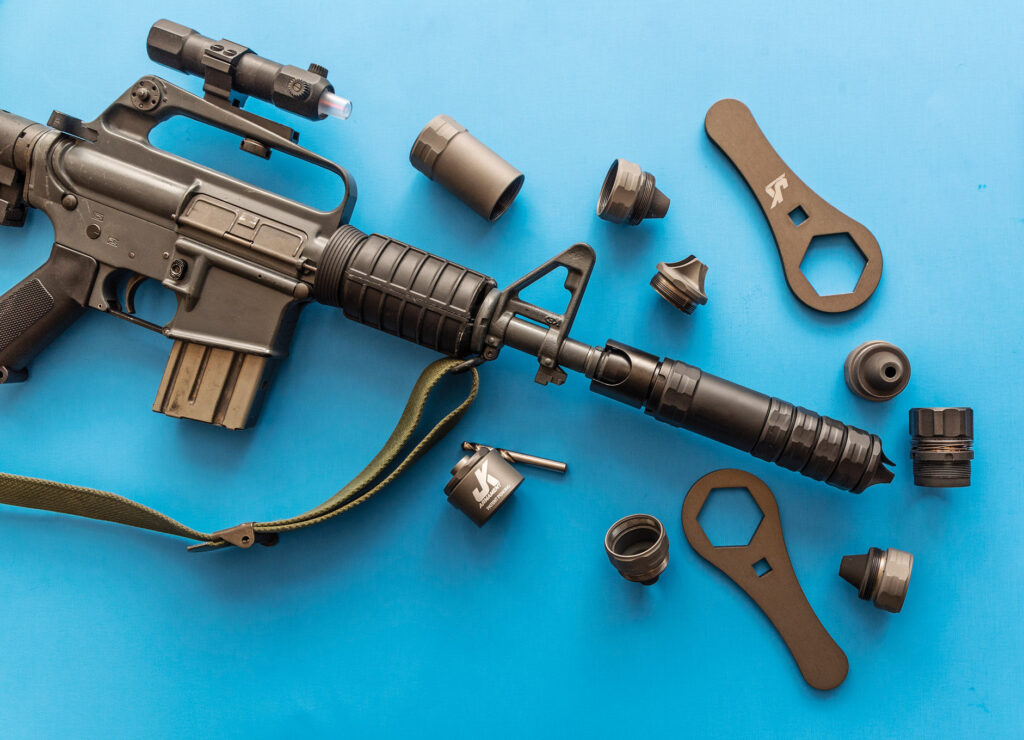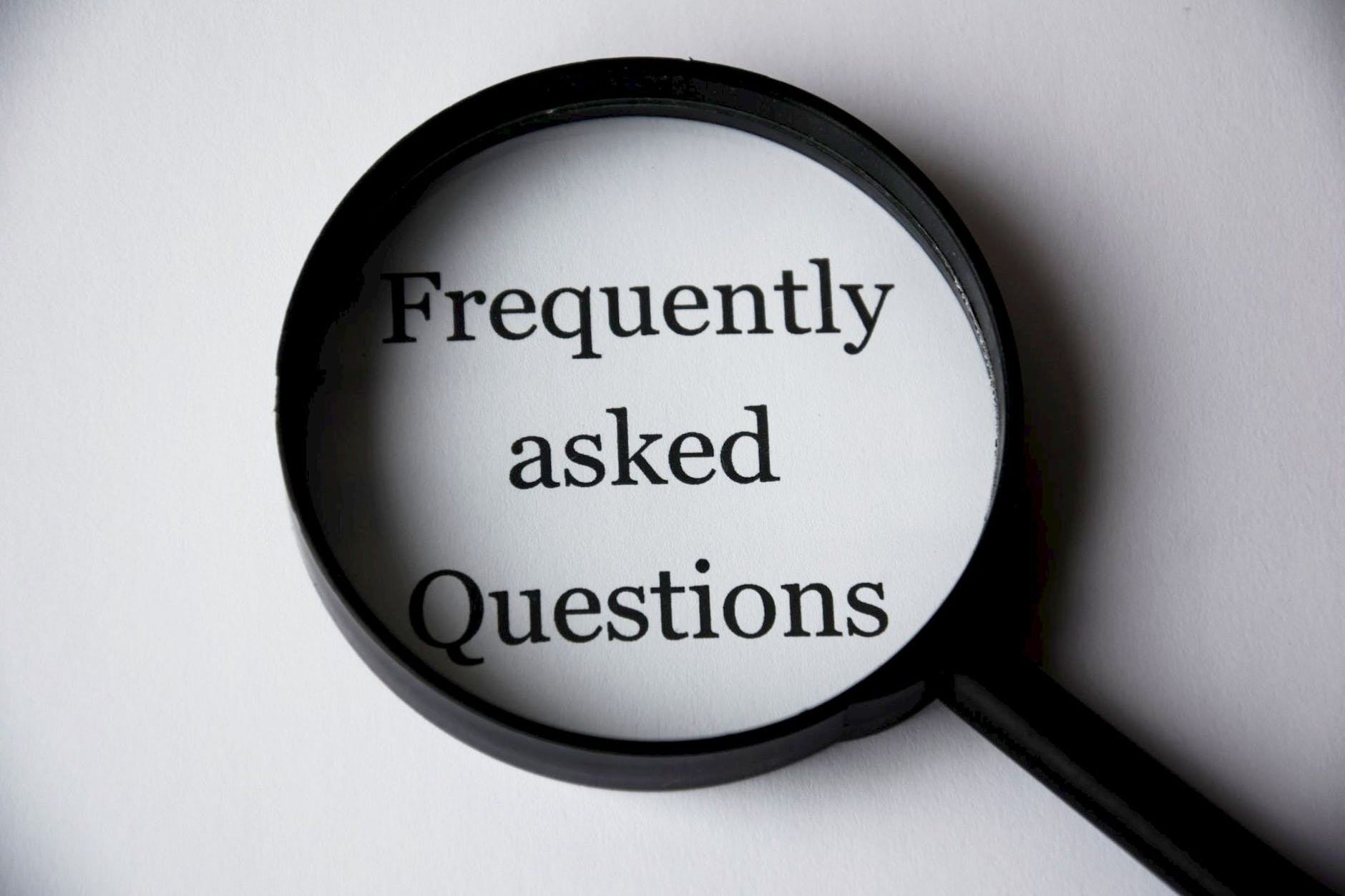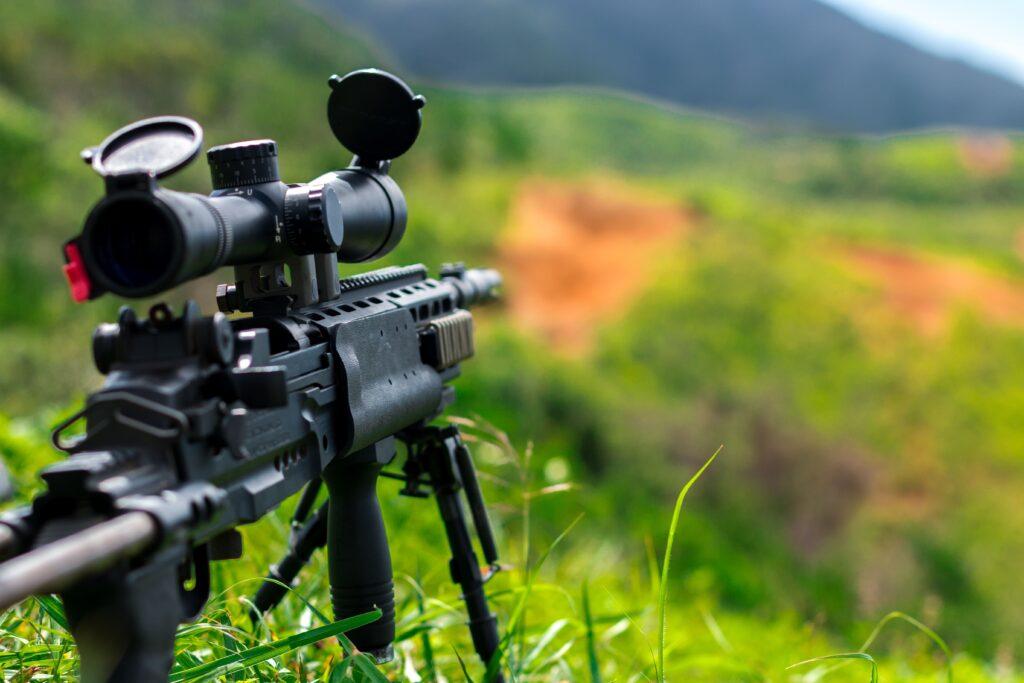Table of Contents
Firearm enthusiasts often seek accessories that can enhance both the performance and versatility of their firearms. One such accessory that raises questions is the solvent trap suppressor. Short answer Yes, a solvent trap suppressor has the potential to improve firearm accuracy by reducing muzzle rise, recoil, and barrel vibrations. However, it is important to consider the specific design, attachment method, and individual firearm characteristics, as well as make necessary adjustments to optics or iron sights to account for any point of impact shifts. In this article, we will delve into the topic and explore whether a solvent trap can truly improve firearm accuracy.

Understanding Solvent Trap Suppressors:
A solvent trap is a threaded device that attaches to the barrel of a firearm, providing the functionality of a suppressor by reducing the noise and muzzle blast. It is important to note that modifying a solvent trap into a suppressor without proper licensing from the Bureau of Alcohol, Tobacco, Firearms, and Explosives (ATF) is illegal in many jurisdictions.
The Relationship between Suppression and Accuracy:
While suppressors are designed primarily to reduce the sound and muzzle blast of a firearm, their impact on accuracy can vary depending on various factors. In general, the addition of a suppressor can have both positive and negative effects on accuracy.
Positive Effects on Accuracy:
1. Muzzle Stability: A suppressor adds weight to the barrel’s muzzle, potentially improving stability and reducing muzzle rise during firing, which can positively impact accuracy.
2. Recoil Reduction: Suppressors can mitigate recoil by redirecting gases and reducing felt recoil, allowing for better follow-through and shot placement.
3. Harmonic Dampening: Some suppressors can act as harmonic dampeners, reducing barrel vibrations and potentially enhancing shot consistency.
Negative Effects on Accuracy:
1. Added Length and Weight: The addition of a suppressor can alter the balance and weight distribution of the firearm, potentially affecting handling and point of aim.
2. Barrel Harmonics: Depending on the suppressor design and attachment method, the added weight and contact points may alter the barrel’s harmonics, potentially impacting accuracy negatively.
3. Point of Impact Shift: It is common for suppressed firearms to experience a shift in the point of impact compared to when shooting unsuppressed. This requires shooters to re-zero their optics or make adjustments to compensate for the shift.
Optimizing Accuracy with a Suppressor:
To maximize accuracy when using a suppressor, shooters can consider the following steps:
1. Proper Mounting and Alignment: Ensuring the suppressor is correctly mounted and aligned with the barrel is crucial to minimize any potential negative effects on accuracy.
2. Optics or Iron Sight Adjustments: When transitioning between suppressed and unsuppressed shooting, adjusting optics or iron sights may be necessary to accommodate the point of impact shift.
3. Load Development: Developing loads specifically tailored for suppressed shooting can help optimize accuracy by accounting for the changes in barrel harmonics and projectile dynamics.
While a solvent trap can have both positive and negative effects on firearm accuracy, its impact will ultimately depend on various factors such as design, attachment method, and individual firearm characteristics. Shooters should be aware of the potential changes in point of impact and take necessary steps to optimize accuracy when using a suppressor. Additionally, it is crucial to comply with all local laws and regulations regarding the lawful use of suppressors and obtain the necessary licensing if applicable.
FAQ


Q1: Can a solvent trap suppressor improve firearm accuracy?
A1: No, it does not directly improve firearm accuracy. It may reduce noise and recoil, but its primary purpose is to suppress the sound of gunfire, not enhance accuracy. The factors affecting firearm accuracy, such as barrel quality, ammunition, and shooting technique, remain unchanged.
Q2: Why is a solvent trap suppressor controversial?
A2: Solvent trap suppressors are controversial because they can be used to illegally modify firearms without the proper permits and compliance with existing laws. Constructing or using a suppressor without adhering to the legal requirements can result in criminal charges.
Q3: Does a suppressor impact bullet trajectory or accuracy?
A3: Legally manufactured suppressors (obtained with the necessary permits) generally do not negatively affect bullet trajectory or accuracy. In some cases, they can even improve accuracy by reducing recoil and allowing the shooter to stay on target between shots.
Q4: What’s the difference between a legal suppressor and a solvent trap suppressor?
A4: A legal suppressor is a regulated and controlled firearm accessory that is manufactured and possessed in compliance with federal, state, and local laws. A solvent trap suppressor is an illegal and unregulated modification of a solvent trap designed for cleaning purposes, which is adapted to reduce the noise of a firearm without proper legal authorization.
Q5. Are there legal alternatives to improve firearm accuracy and reduce recoil?
A5: Yes, there are legal alternatives to improve firearm accuracy and reduce recoil. These include using quality ammunition, upgrading to a match-grade barrel, fine-tuning your firearm, and practicing proper shooting techniques. Additionally, muzzle devices like muzzle brakes and compensators can help manage recoil and maintain stability.
Q6: What should I do if I have questions about firearm modifications and suppressors?
A6: If you have questions about firearm modifications or suppressors, it’s essential to consult with local law enforcement agencies or legal experts who are knowledgeable about firearms laws in your jurisdiction. Always comply with local and federal laws and regulations regarding firearms and accessories to avoid legal issues.
Q7: Does it have any impact on bullet velocity?
A7: It can affect bullet velocity, but the impact is generally minimal. The primary influence on bullet velocity comes from the suppressor’s design, bore diameter, and the type of ammunition used. In some cases, a suppressor can slightly increase bullet velocity due to increased backpressure, but these changes are typically negligible.
8: Can it change the point of impact for a firearm?
A8: Yes, using it can potentially change the point of impact (POI) for a firearm. This shift in POI is due to the added weight and the change in barrel harmonics caused by attaching the suppressor. Shooters often need to re-zero their sights or optics when using a suppressor to ensure accurate shooting.
Q9: Are there any potential accuracy issues with homemade suppressors or solvent trap suppressors?
A9: Homemade suppressors, including solvent trap, can introduce several accuracy-related issues. These include changes in POI, inconsistent performance, potential safety hazards, and legal consequences if not properly registered and regulated. Professional, commercially manufactured suppressors are engineered and tested for performance and safety.
Q10: Can a suppressor enhance accuracy for specific shooting disciplines?
A10: Suppressors are commonly used in precision shooting disciplines, such as long-range shooting and competition shooting, where reducing recoil and muzzle movement between shots can improve accuracy. However, the suppressor itself does not inherently improve accuracy but can contribute to better shot placement in skilled hands.
Q11: is it legal to use a solvent trap suppressor or homemade suppressor in any circumstances?
A11: The legality of using a solvent trap suppressor or homemade suppressor varies widely depending on the jurisdiction and specific laws in place. In many regions, constructing or using such devices without proper permits and compliance with federal, state, and local laws is illegal. It is essential to understand and follow all applicable firearm laws and regulations in your area.
Q12: What are the advantages of using a commercially manufactured suppressor for accuracy?
A12: Commercially manufactured suppressors undergo rigorous testing and quality control to ensure they meet performance and safety standards. They are designed with specific firearm types and calibers in mind, reducing the potential for adverse effects on accuracy. Using a legally acquired and properly designed suppressor can enhance accuracy in situations where recoil and muzzle rise are factors.
In summary, while a solvent trap suppressor or homemade suppressor may have some impact on firearm accuracy, it’s essential to consider the legal and safety aspects of using such devices. Commercially manufactured suppressors are typically more reliable and designed to minimize any adverse effects on accuracy when used legally and responsibly.

